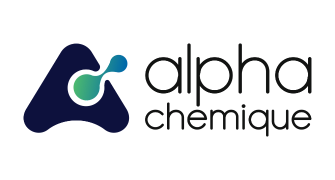EDTA (2Na) Introduction:
EDTA, which stands for ethylenediaminetetraacetic acid, is a highly valued chelating agent that finds extensive use in diverse industries due to its complexing and sequestering capabilities. When in its disodium form (2Na), it is known as disodium ethylenediaminetetraacetate. The purpose of this article is to delve into the properties, benefits, uses, and significance of EDTA (2Na), shedding light on its versatile nature and its importance in various applications.
Properties:
- EDTA (2Na) is characterized by its chemical formula C10H14N2Na2O8 and molecular weight of 336.21 grams per mole.
- It exists in the form of a white, crystalline powder that demonstrates high solubility in water.
- EDTA (2Na) is known for its stability under normal conditions, exhibiting good thermal and chemical stability.
Benefits:
- Chelating properties: One of the primary advantages of EDTA (2Na) is its exceptional chelating ability. It forms stable complexes with metal ions, effectively sequestering them and preventing their interference or undesired reactions in various processes.
- Versatile pH stability: EDTA (2Na) exhibits excellent performance over a wide range of pH levels, allowing it to function effectively in applications that require chelation and complexation under diverse pH conditions.
- Enhanced stability and extended shelf life: By sequestering metal ions, EDTA (2Na) helps protect various products from oxidation and degradation. Its presence can improve stability and prolong the shelf life of formulations that are susceptible to degradation catalyzed by metal ions.
Uses:
- Food and beverage industry: EDTA (2Na) is commonly used as a food additive in the food and beverage industry. It serves as a preservative, sequestering metal ions that can cause spoilage, color changes, or off-flavors in food and beverage products. It helps maintain the quality and stability of processed foods, canned products, and beverages.
- Pharmaceutical applications: EDTA (2Na) finds application in the pharmaceutical industry as a complexing agent. It is used in various formulations, including ointments, creams, eye drops, and parenteral solutions, to improve stability, enhance bioavailability, and prevent unwanted interactions between active ingredients and metal ions.
- Water treatment: EDTA (2Na) is used in water treatment processes, particularly for metal ion control and removal. It helps in the sequestration of metal ions present in water, preventing their undesirable effects on water quality, equipment corrosion, and scaling in industrial systems.
- Cleaning products: EDTA (2Na) is an ingredient in many cleaning products, including detergents, laundry additives, and dishwashing liquids. Its chelating properties allow it to bind to metal ions present in water, reducing the negative impact of hard water on cleaning efficiency and minimizing the formation of soap scum or scale deposits.
- Industrial applications: EDTA (2Na) is utilized in various industrial processes such as metal plating, textile dyeing, and oilfield applications. It helps control metal ions, improves dye fixation in textiles, and prevents unwanted reactions in metal plating baths.
- Analytical chemistry: EDTA (2Na) is widely employed in analytical chemistry as a complexing agent for metal ion titrations and determinations. It assists in the quantitative analysis of metal ions by forming stable complexes that can be easily measured or detected.
Conclusion:
EDTA (2Na), or disodium ethylenediaminetetraacetate, is a versatile chelating agent with significant applications in the food and beverage industry, pharmaceuticals, water treatment, cleaning products, industrial processes, and analytical chemistry. Its strong complexing ability and pH stability make it a valuable ingredient.

